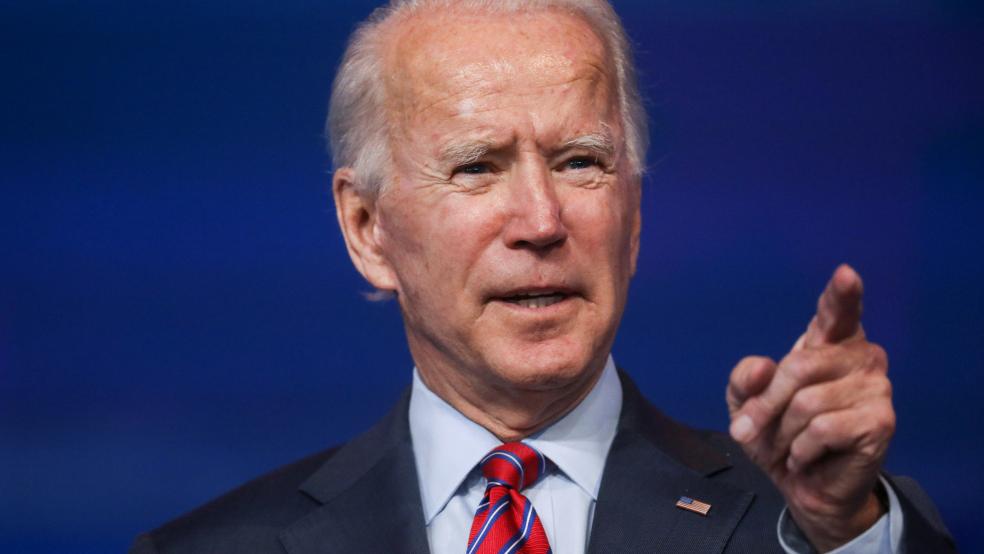The new administration and new Congress in Washington are quickly running into the same old debates about Covid relief.
President Joe Biden has called for a $1.9 trillion pandemic aid package, but Republicans have already dismissed the idea of delivering everything on Biden’s wish list. Democrats, meanwhile, face some internal differences about the best strategy for passing another relief package and on how far they should press their narrow majorities in the House and Senate.
Biden’s plan a ‘non-starter’ for Republicans: “GOP lawmakers on Tuesday dismissed the argument by Janet Yellen, who’s awaiting Senate confirmation as Treasury secretary, that historically low interest rates mean major deficit spending isn’t a problem right now,” Bloomberg News noted. Even Republican moderates like Sens. Mitt Romney (UT) and Lisa Murkowski (AK), both of whom played a key role in enacting last month’s relief package, have questioned the need for another massive spending bill so soon on the heels of that $900 billion effort.
“I suspect the whole package is a non-starter,” Sen. Roy Blunt (R-MO) told reporters Thursday. “But it’s got plenty of starters in it, and a lot of them are things that we proposed in terms of more assistance to the states. I think we’re ready to look at what it takes to move forward as effectively and quickly as we can on vaccine distribution, on securing what we need for the future.”
Republicans object to Biden’s proposal to raise the federal minimum wage to $15 an hour and some have rejected providing the amount of aid Biden would like for state and local governments, among other criticisms of the president’s plan.
Democrats divided on the best path forward: Democrats remain eager to pass another relief bill, and House Speaker Nancy Pelosi (D-CA) said Thursday that House committees will begin work on Biden’s plan next week even as the full House won’t return to session until the following week. “House Democrats have rearranged their schedule over the next two weeks, scrapping votes next week to allow the relevant committees to consider the various provisions of their emerging COVID-19 relief package,” The Hill said. “Pelosi suggested that package could hit the House floor as early as the week of Feb. 1.”
But Democrats are split on just what approach they should take, given that passage of a large aid bill in the 50-50 Senate would be more difficult. As PunchBowl News reported:
“There are elements in the White House and figures in the House Democratic Caucus pushing to pass a bill next week to plus up vaccine money and send targeted, $1,400 direct checks to Americans. This would be an immediate victory for the Biden administration and a Democratic Congress that’s just coming to power.
“But there are some in the Senate and others in the House who have voiced concern over this strategy. They don’t want to pass the popular stuff alone, they want to hold out for a larger deal that includes direct checks, vaccine money and a lot more.”
Timing is one consideration, since any larger relief package that includes Democratic priorities beyond direct payments and vaccine funding likely wouldn’t happen for weeks. But some Democrats reportedly worry that passing a narrower package now might mean that nothing else gets done later, with Republicans potentially willing to let emergency unemployment benefits lapse as scheduled in mid-March.
Using a tool called reconciliation would allow Democrats to push a package through Congress on their own, and avoid the threat of a filibuster by Senate Republicans, but that approach would be discordant with Biden’s call for unity and bipartisanship and it would also require limiting the size and scope of the package in order to comply with budget rules. The minimum wage hike, for example, couldn’t be included. Even then, Democrats would have to make sure that all 50 Democratic senators support the plan.
“We’re at that point where we can do whatever leadership says they want to do,” House Budget Committee Chair John Yarmuth (D-KY) told reporters, according to Politico. “We’re prepared to use reconciliation for the relief package and we’re saving it for the relief package because that’s our number one priority, but we hope we don’t have to use it.”
Reaching out to moderates: Against that backdrop, Biden’s top economic adviser, Brian Deese, reportedly plans to meet with a bipartisan group of 16 centrist senators in the next week or so to push for the president’s proposals. The senators expected to take part in that meeting include Republicans Shelly Moore Capito (WV), Bill Cassidy (LA), Susan Collins (ME), Jerry Moran (KS), Murkowski, Rob Portman (OH), Romney and Todd Young (IN).
The Democrats are Dick Durbin (IL), Maggie Hassan (NH), John Hickenlooper (CO), Mark Kelly (AZ), Joe Manchin (WV), Jeanne Shaheen (NH), Mark Warner (VA). Sen Angus King of Maine, an independent who caucuses with the Democrats, is also anticipated to be in the meeting.
Some progressive Democrats are already warning that the administration shouldn’t only focus on centrists, further highlighting the challenges Biden could face as he tries to reach bipartisan agreement on a relief deal.





